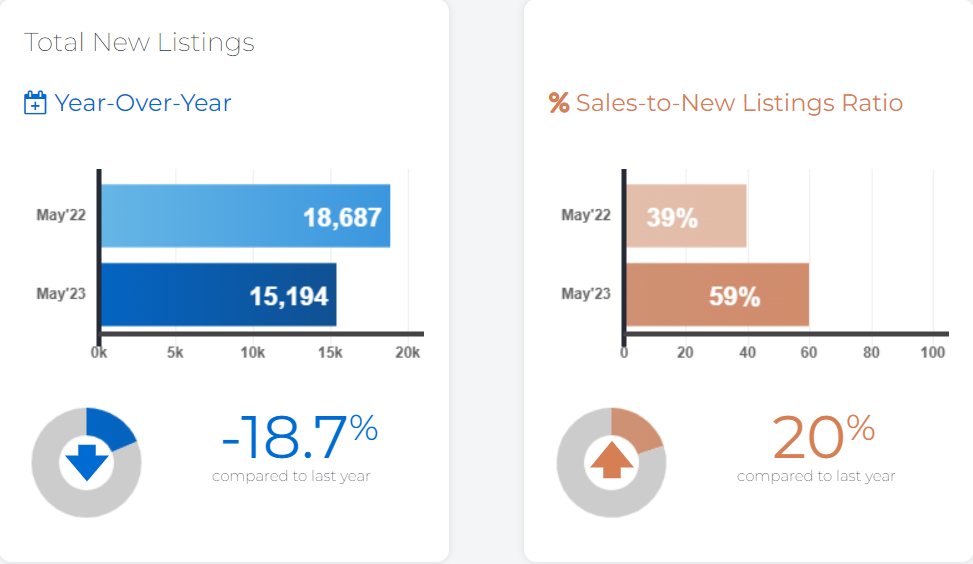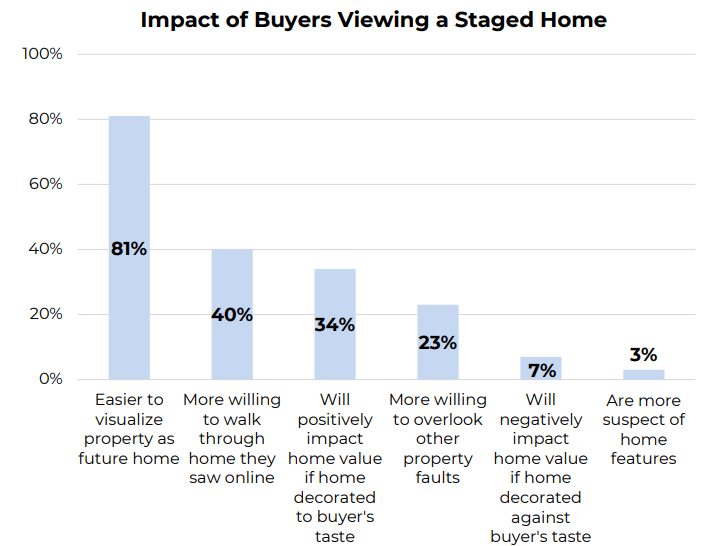In the real estate market, a sellers market refers to a situation where the demand for homes exceeds the available supply, giving home sellers an advantage in negotiations and often resulting in higher property prices. Understanding a seller’s market dynamics is essential for sellers and buyers to make informed decisions during real estate transactions.
Let’s delve into the understanding, characteristics, factors, and impact of a seller’s market to equip sellers and buyers with the knowledge to successfully navigate this dynamic real estate market environment.
Table of Contents:

Definition of a Sellers Market
In the real estate market, a seller’s market refers to a situation where the demand for homes exceeds the available supply, giving home sellers an advantage in negotiations and often resulting in higher property prices. There are typically more potential home buyers than property listings in such a market, leading to increased buyer competition and prices.
| Did you know? A buyer’s market exists when there are more residences for sale than there are purchasers. A market is balanced when the number of properties for sale equals the number of purchasers. |
Brief Overview of the Article
In this article, we will explore the current state of the real estate market and examine the factors contributing to a seller’s market. We will discuss the real estate trends and market conditions favouring home sellers and the implications for buyers and sellers in this competitive environment.
Home buyers and sellers can make more informed decisions during real estate transactions by understanding the dynamics of a seller’s market.
Now, let’s delve into the factors shaping the current sellers’ market and their impact on housing demand and property prices.
Understanding a Sellers Market
In the real estate market, a seller’s market refers to a situation with high demand for homes outpacing the available supply. This scenario empowers home sellers and creates a favourable environment for them in negotiations and pricing. We typically observe increased competition among home buyers in a seller’s market, resulting in higher property prices and faster sales.
Characteristics of a Sellers Market
A seller’s market exhibits specific attributes that favour home sellers. These characteristics include limited inventory, high demand, a competitive environment, quick sales, and price escalation. In a seller’s market, there is a scarcity of available homes for sale, creating a sense of urgency among home buyers.
The housing demand exceeds the supply, with more buyers looking to purchase homes than properties available. This heightened competition often leads to multiple offers and bidding wars among buyers. Additionally, homes tend to sell swiftly in a seller’s market due to the high demand and limited supply.
The limited inventory and intense competition contribute to rising property prices, allowing home sellers to command higher sale prices and achieve a better return on investment.

Factors that Create a Sellers Market
Several factors contribute to creating a seller’s market in the housing market. These factors can include:
- Low housing inventory: When there is a scarcity of property listings, buyers face increased competition, giving sellers an advantage. Right now, the number of new listings went up by 6.8% month-over-month, but it is still at an all-time low.
- Strong economy: A robust economy with favourable economic indicators stimulates housing demand and fuels a seller’s market.
- Low mortgage rates: When interest rates are low, it encourages home buyers to enter the market, further intensifying demand.
- Population growth: Rapid population growth can outpace the construction of new homes, leading to a shortage of housing supply and contributing to a seller’s market.
- Desirable location: Areas with attractive amenities, good schools, and convenient access to services tend to experience high buyer demand, creating a seller’s market environment.
| Did you know? Canada’s population reached 40 million people on June 16, 2023. |
The Impact of a Sellers Market on Prices
A seller’s market directly influences property prices and the dynamics of real estate transactions, leading to several notable effects. Firstly, home sellers have the advantage of increased sale prices, as the limited supply and strong demand enable them to demand higher prices for their properties.
On the other hand, buyers experience reduced negotiation power as they contend with other buyers in a competitive environment, increasing the need for effective negotiation strategies to secure a desirable property. Moreover, properties tend to sell rapidly in a seller’s market as buyers strive to outpace each other and secure a home before someone else does.
Navigating a seller’s market can be challenging for buyers, requiring them to be well-prepared, have financing, and work closely with a knowledgeable real estate agent who understands the local market conditions.

The Pros and Cons of a Sellers Market
In a seller’s real estate market, the dynamics heavily favour home sellers due to the high demand and limited supply. While this situation can benefit sellers, it also presents challenges and considerations. Let’s explore the advantages and disadvantages for both sellers and buyers in a seller’s market.
Advantages for Sellers
Selling a home in a seller’s market can offer several benefits for home sellers, including:
- Higher sale prices: The limited supply and strong demand allow sellers to command higher property prices, potentially resulting in a better return on investment.
- Faster sales: Homes tend to sell quickly in a seller’s market, as there are more motivated buyers than available properties.
- Multiple offers: In this competitive environment, sellers may receive multiple offers on their property, providing opportunities for favourable terms and conditions.
- Greater negotiating power: Sellers often have the upper hand in negotiations, given the limited supply and increased buyer competition.
- Potential for favourable terms: Sellers may be able to negotiate terms that are more favourable to them, such as shorter closing timelines or fewer contingencies.
Disadvantages for Sellers
Despite the advantages, there are also potential disadvantages for home sellers in a seller’s market, including:
- Pressure to perform: In a competitive market, sellers may feel pressure to prepare their property meticulously, stage it effectively, and navigate the selling process efficiently.
- Limited housing options: While selling a property may be advantageous, sellers may face challenges when looking for a new home, as they also need to contend with the limited inventory and high demand.
- Potential appraisal challenges: In a rapidly appreciating market, appraisals may struggle to keep up with rising property prices, which can complicate financing for buyers.
Advantages and Disadvantages for Buyers
While a seller’s market can be challenging for buyers, there are still potential advantages and disadvantages they should be aware of:
- Limited housing options: The low inventory can make it difficult for buyers to find suitable properties that meet their needs.
- Competitive bidding: Buyers may find themselves in bidding wars, leading to increased competition and potential escalation of property prices.
- Faster decision-making: In a seller’s market, buyers must act quickly to make offers and secure a property before other buyers do.
- Seller-favourable terms: Sellers may have more negotiation power, resulting in less favourable terms for buyers, such as fewer contingencies or less room for price negotiations.
Despite the challenges, buyers can still navigate a seller’s market successfully by:
- Being prepared: Buyers should have their financing in order and be pre-approved for a mortgage to demonstrate their seriousness and readiness to purchase.
- Working with an experienced agent: A real estate agent experienced in competitive markets can provide valuable guidance and support throughout home buying.
- Flexibility and open-mindedness: Buyers may need to be flexible regarding location, property features, and timing to increase their chances of finding a suitable home.

Navigating a Sellers Market
In a competitive seller market in the real estate market, sellers and buyers must employ effective strategies to navigate the challenges and maximize their opportunities. Here are some tips for sellers and buyers in a seller’s market.
Tips for Sellers
To increase their chances of making a successful sale in a seller’s market, sellers can implement various strategies and steps. Firstly, it is crucial to set the right price for the property. This involves conducting research on recent property sales and collaborating with a skilled real estate agent who can help determine an optimal listing price that attracts buyers while aligning with the current market conditions.
In addition to pricing, enhancing curb appeal is vital in making a positive first impression. Sellers can consider improving the exterior of their homes by freshening up the landscaping, applying a fresh coat of paint, or making small renovations that enhance the overall appeal.
Staging the home effectively is another essential aspect. Sellers should showcase their property’s best features by decluttering, depersonalizing, and arranging furniture to create a welcoming and visually appealing environment for potential buyers.
Strategic marketing is also crucial in reaching a broad audience. Professional photography, virtual tours, and high-quality listing descriptions can effectively highlight the property’s unique selling points. Leveraging online platforms and social media can further expand the property’s exposure and attract potential buyers.
Conducting pre-listing inspections can provide added confidence to buyers. By identifying potential issues that may arise during the transaction and proactively addressing them, sellers can streamline the selling process and instill trust in interested buyers.
In a competitive market, multiple offers may be received. Sellers must review each offer carefully, considering not only the price but also the contingencies and terms attached to each offer. Lastly, working with an experienced real estate agent who specializes in seller markets can be highly beneficial. Such an agent can provide valuable guidance and negotiation expertise, ensuring sellers navigate the market successfully and maximize their chances of making a sale.
| Did you know? Eighty-one percent of buyers’ agents said that a staged home helped buyers to see the property as their future home. |

7 Tips for Buyers
Buyers can use the following strategies to navigate a seller’s market effectively:
- Get pre-approved for a mortgage: Obtain a pre-approval from a lender to demonstrate your financial readiness and strengthen your position as a serious buyer.
- Define your priorities: Determine your must-haves and deal-breakers regarding location, property features, and budget. This clarity will help you make quick decisions when opportunities arise.
- Act swiftly: Properties sell quickly in a seller’s market, so be prepared to act immediately when you find a suitable home. Work closely with your real estate agent to stay informed about new listings and schedule viewings promptly.
- Be flexible: Consider properties that may not meet all your criteria but have the potential to be modified or improved. Being open-minded and flexible can broaden your options and increase your chances of success.
- Make a strong offer: In a competitive market, compelling offers are crucial. Work with your agent to come up with a competitive offer that aligns with your budget and the current market conditions.
- Stay within your budget: While it may be tempting to stretch your budget to compete with other buyers, staying within your financial limits is essential to avoid future financial strain.
- Have a backup plan: If your initial offer is not accepted, consider alternative properties as backup options. Backups ensure that you can quickly pivot and pursue other opportunities.
By following these tips, sellers and buyers can navigate a seller’s market more effectively, increase their chances of success, and achieve their desired outcomes in the current real estate market.

FAQ
How long does a seller’s market last?
The duration of a seller’s market can vary depending on various factors such as economic conditions, housing supply, and buyer demand. In some cases, it can last for several months or even years. It is essential to monitor the market trends and consult with real estate professionals to understand the current state and anticipate any shifts.
How can you tell if it’s a seller’s market?
Several indicators can help determine if it’s a seller’s market:
- Low inventory: When a limited number of homes are available for sale.
- High demand: More buyers are looking to purchase homes than available properties.
- Quick sales: Homes sell rapidly, often with multiple offers and bidding wars.
- Rising prices: Property prices are escalating due to the high demand and limited supply.
Monitoring these factors and consulting with real estate agents can provide insights into the current market conditions.
What should buyers do in a seller’s market?
Buyers can take several steps to navigate a seller’s market successfully:
- Get pre-approved for a mortgage to demonstrate financial readiness.
- Define priorities and be flexible when it comes to location and property features.
- Act swiftly when suitable properties become available, as they tend to sell quickly.
- Make strong offers, considering the current market conditions and competition.
- Work closely with a real estate agent who understands the local market.
These strategies can improve buyers’ chances of finding and securing a property in a seller’s market.

Sellers Market – Final Words
Navigating a seller’s market can be challenging, but sellers and buyers can make the most of the current real estate market conditions with the right strategies. Sellers should focus on pricing their homes correctly, enhancing curb appeal, staging effectively, and working with experienced agents.
On the other hand, buyers should be prepared, act swiftly, be flexible, and work closely with knowledgeable real estate professionals. By following these tips and staying informed about market trends, both sellers and buyers can achieve their goals in a competitive real estate market.













